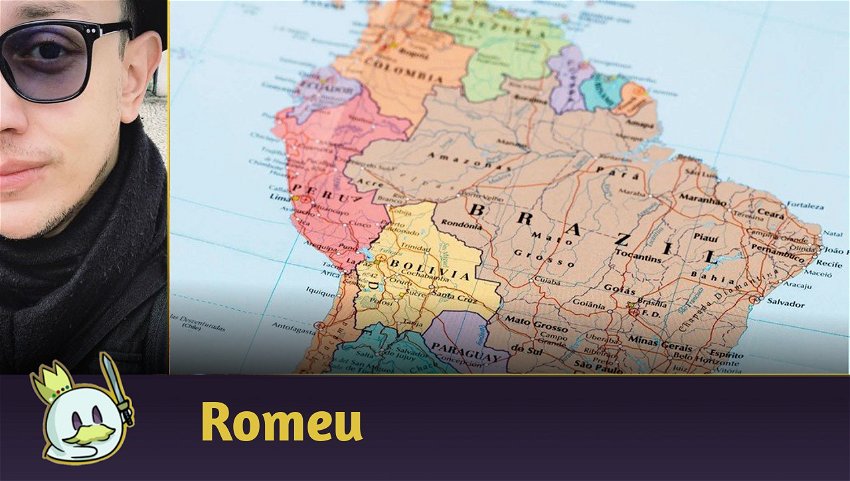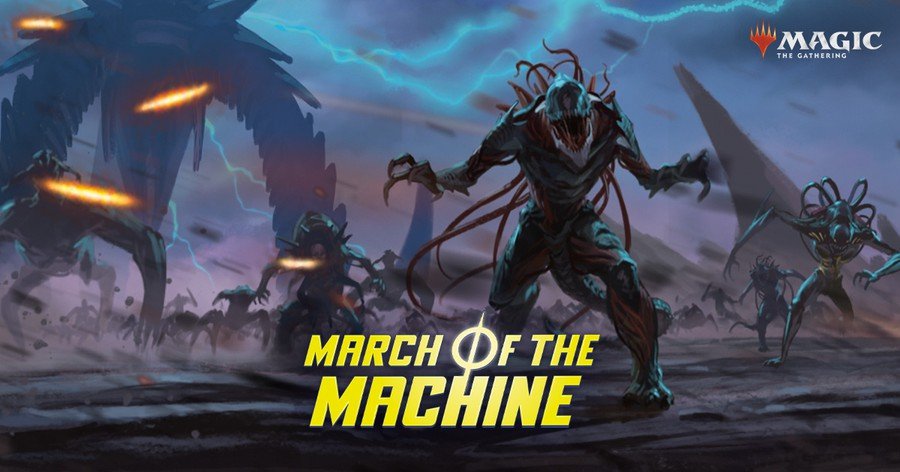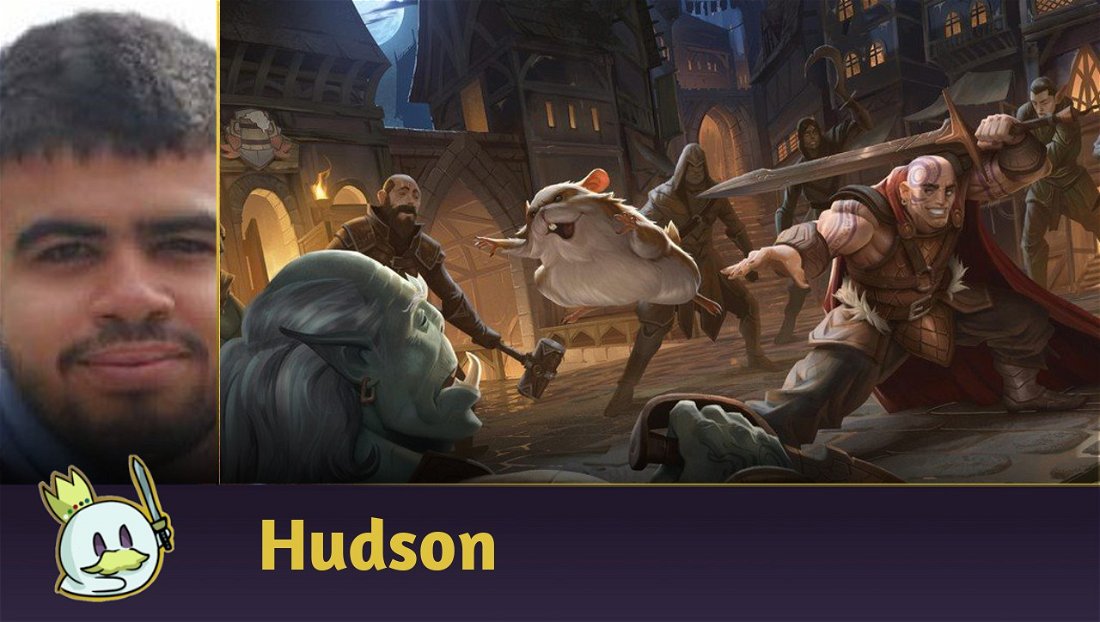Last Tuesday, the former Wizards of the Coast's Brazilian Community Manager, Carolina Moraes, posted on her Twitter that, along with the rest of the Latin America team, she had been dismissed as part of the company's renovation project. The announcement reverberated across social media and raised questions about Magic's future in Latin America.
In this article, we'll cover what the end of Wizards' digital relationships with Brazil and Latin America means for the game.
However, it is not up to us to evaluate or criticize Carolina's performance as a community manager, given that each professional knows exactly where their limitations lie in relation to their employer, in addition to taking a course of action based on the expectations and demands of the company. It is not up to me, nor to Cards Realm, to point out successes and failures over the years that the communicator was in this role.
Ad
What is a Community Manager?
The first point we must address is that few people have a genuine understanding of what a Community Manager does, so let's clarify this point to move on with the article.
Community Manager is a communication professional who manages a company's or brand's online relationship with its target audience through a stable bond with customers, fans and users. Its main function is to keep the brand name engaged enough for it to remain relevant in its niche through interaction on networks, advertising and other content that is relevant both to the loyal audience and to new customers.
In summary, it is possible to state that the Community Manager are the "public relationship" of that brand or company within the digital universe and have as their main resource the online engagement of their fans and users to ensure that that product is always 'on the hype' through interaction.
The Precedent
Magic has undergone some significant changes in recent years, and some examples include the relentless amount of product releases, the end of the Pro League, and the return of the Pro Tour, but also going through other points such as the end of product releases in languages such as Russian, Korean, and Traditional Chinese in July 2022, plus some English-specific product language changes and restrictions.
Which raises the main concerns of the community with the end of the Latin American communication sector:
Will Magic stop being published in Brazilian Portuguese?
For that question, the clearest answer currently would be not yet. Magic is a game, but it is also a Hasbro product to be sold, and the company demonstrates this every week with a different novelty, such as collaboration with Lovesac.
Therefore, the priority in printing cards in a given language varies according to the demand for that product, which means that, yes, Magic may stop being printed in Portuguese if Wizards/Hasbro does not consider its printing process as lucrative.
Today, it is more possible that certain product lines stop being printed in Portuguese than a complete blackout of the language in the card game. However, considering this possibility as a cause and effect relationship with the dismissal of the Brazilian marketing team is a mistake and a misinterpretation of the role that this function represents for a company, given that there are foreign products that don't have interactivity on the networks dedicated exclusively to countries or regions and, even so, manage to keep their products in their respective languages via distributors.
If this firing demonstrates anything, it's that Wizards doesn't see the need to manage the Latin American community and/or the need to maintain a decentralized engagement around specific audiences.
What do we lose without a Community Manager?
In addition to content and engagement completely aimed at the Latin American audience? We lost range.
Ad
Despite some shortcomings, we cannot say that the work of creating content entirely aimed at our audience was in vain: providing further information, curiosities and media meant opening up opportunities for several people to get to know Magic: The Gathering without anyone having to specifically go to them and present the game, while facilitating the immersion of this new potential customer in the universe of the franchise.
An example of Magic's marketing work aimed entirely at the Brazilian public was this commercial with well-known names from our popular culture, such as the youtuber Cauê Moura, musician Lucas Silveira from the band Fresno, streamer Pri Vitalino and former soccer player and now sports commentator Craque Neto playing a game.
Commercials like this break down barriers and increase the game's potential customers, as well as add content to keep your audience engaged.
With the absence of local management, the possibility of having content dedicated to the Brazilian consumer decreases, and it is likely that Hasbro/Wizards' natural conclusion is, again, that the costs were not worth the investment, and there is a rather obvious reason to follow this reasoning today:
Magic sells by Itself
Magic has been around for 30 years and has established itself as the greatest collectible card game in history. During that time, the world has changed drastically, and today we live in a globalized reality and whose main method of unison communication is also the same where there is a cacophony of it, the social media.
But by existing for so long and maintaining a mostly loyal audience, Magic managed to establish its own ecosystem powered by supply and demand of its respective pieces of cardboard inside assorted packets, from which a strong secondary market was created by the need for consumers to obtain the desired cards to compete in tournaments and/or play in casual formats with their friends - and the amount of money moving through these little pieces of cardboard in the world on a daily basis is no small matter, so for Magic to stop selling, this ecosystem would need to wither - and despite Hasbro's many attempts to implode the game's long-term health, as pointed out by Bank of America for the second straight quarter, this ecosystem continues to show little or no sign of crisis on a global scale.
This means that, out of the desire to play and compete, players will continue to buy cards, and as long as they continue to buy, there will be stores and distributors willing to meet their demand, and as long as those exist, Magic will be able to sell almost on its own because the economic ecosystem around the game has been established for thirty years and continues to run smoothly, and with or without Community Manager, the Latin American audience engaged in the game will continue to purchase cards, decks and other related products.
Ad
Therefore, why invest money in creating engagement and publicity for a specific region when you can save money by centralizing these resources in a single global communication channel in a language that the captive public is already used to and/or when the social networks themselves offer machine translation features?
Even Brazilians engaged more frequently with the contents of the mothership than with the profile in Portuguese, due to the high speed with which information is transmitted on networks such as Twitter or Instagram. It only takes seconds to follow one or two influential names here or there, and you already know the latest news before Wizards_MagicBR itself schedules a post for the local community.
The content creators and influencers are also to blame
Working with Magic is a peculiar task, as there's always something going on, especially in modern times when previews come out earlier and earlier. And even when there are no spoilers to discuss, there is always some new deck, an interesting tech to fight against the Metagame of a format, a curiosity about a certain topic, etc. And as with every game and/or product in the entertainment industry, there are autonomous people and portals entirely dedicated to addressing and discussing this information here in the game - it's even the work we do here at Cards Realm!
For every article, video, stream or even tweet we make about Magic, we are also doing the service of disseminating information and generating free engagement for the game. And when hundreds or thousands of people do this daily, wouldn't they be a much more efficient propaganda machine than a regional Community Manager, and a lot cheaper, since very few of us are actually paid by Wizards of the Coast itself to promote their product? The truth is that, apart from a gift or another given by the company to some select and/or raffled groups, we don't even know if there are people dedicated to the game who are, in fact, paid to promote it.
It is clear that each communicator and/or portal has its objective in talking about Magic: a portal like ChannelFireball wants to guarantee the success of its marketplace, a streamer or YouTuber intends to guarantee the monetization of their videos to generate income, a website wants clicks to increase its traffic and/or influence on the networks, and there's nothing wrong with that - but we need to recognize that our engagement with the game is also responsible for the decisions the company makes regarding its official communication.
Magic is about impermanence, and if we disseminate the information that the mothership presents as quickly as possible to ensure our individual success, it is clear that a company can therefore consider that we are a large enough source of marketing that doesn't demand investment or resources to disseminate information and keep the brand's name engaged. The ecosystem already operates on its own.
They don't care about Latin America?
There is no correct answer to this question. A company cares about its consumers as they generate revenue and profit for it, and saying that "Wizards doesn't care about Latin Americans" now is a little inconsistent because the company has always shown less importance to our region than to Europe or the United States.
Ad
Playing Magic, or having a career in the game when it was still possible to have one, was never a simple task, and we face challenges that only countries with devalued currencies and economic recession face: inflated card prices, logistical problems with tickets and reservations to play Pro Tour in another region, among other points that are beyond Wizards and which the company never sought or was interested in addressing.
Even at points where there were company decisions, such as hosting the Grand Prix in our region, there was a certain discrepancy in relation to other regions given the size of ours. But, while there are already several content creators affronting the company regarding its supposed 'abandonment' to Brazil, it is impossible not to remember that this was not the company's first precedent or disregard for our continent, so where were we when the Pride Across the Multiverse has been blocked in Latin America under legal pretexts incompatible with the laws of our country? Is it so much more outrageous to see the end of Latin American community management than for the company to assume that all countries in a given region have homophobic legislation? Where were we when, for a long time, we didn't have access to Secret Lair series products without buying via retailers?
Wizards of the Coast has demonstrated precedents of disregard for Latin America several times over the years, and just as I believe will happen with this recent uprising, we will forget about it in a few days or weeks. After all, this change, like the others, does not mean the end of the game for our region.
What can we do then?
Nothing. No matter how outrageous the situation seems to some, it is way beyond our grasp.
Certain subjects and topics are beyond our reach, and even the bravest of souls who propose a boycott of the company for its abandonment fails to understand that, for such a movement to work, a unified voice for a cause is needed, and in the complex Magic: The Gathering ecosystem, that voice will never unite - if we didn't unite even when they tried to sell us four 30th Anniversary Boosters with proxies for $1,000, we won't unite by firing a marketing team.
In fact, in this situation, the best course of action is to continue supporting the game, and especially the local stores, as they are the ones who have lost the main shred of public relations for the mothership. We can complain a lot on Twitter, but stores need to formalize their complaints and send them to the responsible sector, and with the absence of a person managing this relationship between Wizards and the storekeeper in that region, their already very low voices in the face of the thunderous echo from Amazon will just get even smaller.
So gather your friends, go on a weekend or afternoon or evening to your favorite and/or nearest store, get your decks ready, shuffle, play and have fun. Latin American Magic has gone more than two decades without dedicated community management, and manages to survive and prevail without it.
Ad
However, it is also up to us to watch and demand. After all, this may not even be the end of Magic for Latin America, but it is a tremendous setback which opens another precedent of the company responsible for the game's disregard for us and the other countries in our region, and our voice, as well as that of the rest of the world, must be heard. You never know what else they might suddenly take from us.
Conclusion
That's all for today.
Despite the impact this has on the community, the end of official content dedicated to Latin America does not mean the end of Magic in the region. However, the decision seems to be another of several choices that Wizards/Hasbro has taken to maximize profits and perhaps capitalize on the good faith of its consumers and content creators.
On the other hand, Magic has survived almost two decades in Brazil and other countries without a Community Manager, and as long as the community sticks together and continues to support the game and local stores, we will still have the means to build a far-flung community where, preferably, we manage to establish healthy relationships with each other.
To Carolina Moraes, our sincere thanks for taking the time to promote Magic: The Gathering beyond its own bubble. Your activities have made a great contribution to the Brazilian community, and we at Cards Realm team wish you success in your future projects.
Thanks for reading!









— Comments0
Be the first to comment